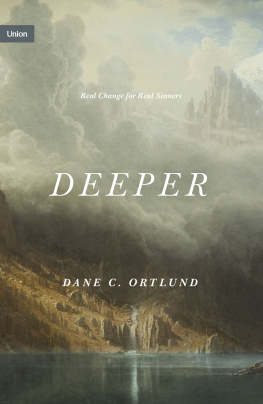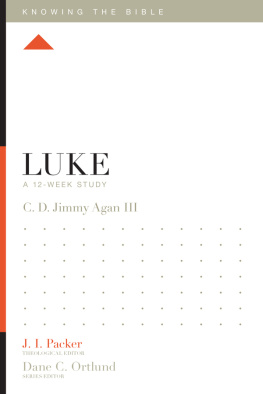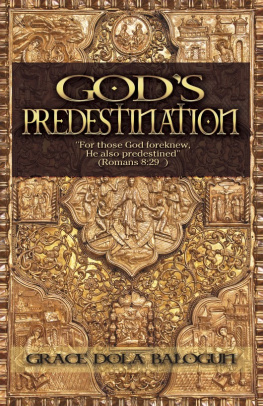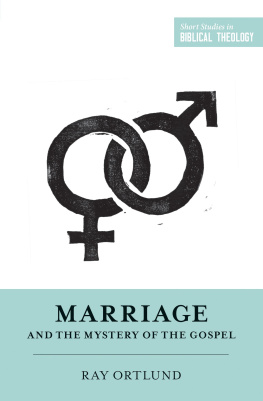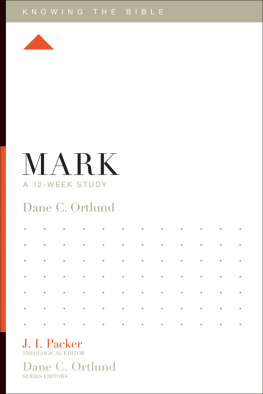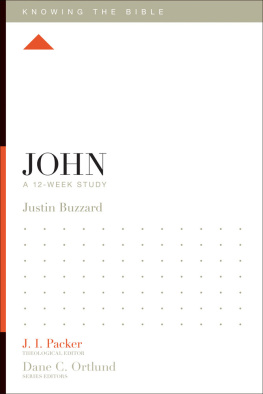Table of Contents
Landmarks
This is a book about growing in Christ . The first thing to get clear, then, is what Jesus Christ himself is like. Our growth is not independent personal improvement. It is growth in Christ . Who then is he?
The temptation for many of us at this point is to assume we pretty much know what Jesus is like. Weve been saved by him. Weve spent time in the Bible over the years. Weve read some books about him. Weve told a few others about him.
And yet, if we are honest, we still find our lives riddled with failure and worry and dysfunction and emptiness.
One common reason we fail to leave sin behind is that we have a domesticated view of Jesus . Not a heterodox view; we are fully orthodox in our Christology. We understand that he came from heaven as the Son of God to live the life we cannot live and die the death we deserve to die. We affirm his glorious resurrection. We confess with the ancient creeds that he is truly God and truly man. We dont have a heterodox view. We have a domesticated view that, for all its doctrinal precision, has downsized the glory of Christ in our hearts.
So we need to begin by getting clear on who this person is in whom we grow. And we start just therehe is a person. Not just a historical figure, but an actual person, alive and well today. He is to be related to. Trusted, spoken to, listened to. Jesus is not a concept. Not an ideal. Not a force. Growing in Christ is a relational, not a formulaic, experience.
Who then is this person?
Unsearchable
Ephesians speaks of the unsearchable riches of Christ (Eph. 3:8). The Greek word underlying unsearchable occurs just one other time in the New Testament, in Romans 11:33: Oh, the depth of the riches and wisdom and knowledge of God! How unsearchable are his judgments and how inscrutable his ways! Romans 11 calls Gods wisdom and knowledge unsearchable. That makes sense. God is infinite and omniscient; of course his wisdom and knowledge are unsearchable. But Ephesians 3 calls Christs riches unsearchable. How so? What does it mean that there are riches in Christ and that these riches are unsearchable? That we can dig and dig but never hit bottom on them?
As you wade into this book, let me propose an idea. Let me suggest that you consider the possibility that your current mental idea of Jesus is the tip of the iceberg. That there are wondrous depths to him, realities about him, still awaiting your discovery. Im not disregarding the real discipleship already at play in your life and the true discoveries of the depths of Jesus Christ you have already made. But let me ask you to open yourself up to the possibility that one reason you see modest growth and ongoing sin in your lifeif that is indeed the caseis that the Jesus you are following is a junior varsity Jesus , an unwittingly reduced Jesus , an unsurprising and predictable Jesus . Im not assuming thats the case. Im just asking you to test yourself, with honesty.
When Christopher Columbus reached the Caribbean in 1492, he named the natives Indians, thinking he had reached what Europeans of the time referred to as the Indies (China, Japan, and India). In fact he was nowhere close to South or East Asia. In his path were vast regions of land, unexplored and uncharted, of which Columbus knew nothing. He assumed the world was smaller than it was.
Have we made a similar mistake with regard to Jesus Christ? Are there vast tracts of who he is, according to biblical revelation, that are unexplored? Have we unintentionally reduced him to manageable, predictable proportions? Have we been looking at a junior varsity, decaffeinated, one-dimensional Jesus of our own making, thinking were looking at the real Jesus ? Have we snorkeled in the shallows, thinking weve now hit bottom on the Pacific?
In this chapter Id like to mention seven facets of Christ, seven regions of Christ that may be under-explored in our generation. Dozens more could be considered. But well restrict ourselves to these seven: ruling, saving, befriending, persevering, interceding, returning, and tenderness. The point of this exercise is to bring the living Christ himself into sharper, starker contrast, to see him loom larger and more radiant and more glorious than ever beforeto trade in our snorkel and face mask for scuba gear that takes us down into depths weve never peered into beforeand to seek Christian growth out of an accurate and ever-deepening vision of the Christ to whom we have been united.
Ruling
Jesus exercises supreme authority over the entire universe.
Just before his ascension he said, All authority in heaven and on earth has been given to me (Matt. 28:18). He is not hoping to be in charge; he rules supremely now. The worlds sidelining of his authority does nothing to reflect the reality of that authority. From heavens perspective, everything is going according to plan. Jesus Christ is overseeing all that happens, both in the church and in world history at large. Our perception of and ability to see his rule may wax and wane; but thats perception only. His actual rule holds steadysupreme, strong, exhaustive, all-seeing. No drug deal goes down apart from his awareness, no political scandal unfolds beyond the reach of his vision, no injustice can be exacted behind his back. When todays world leaders gather together, they themselves are held in the hand of a risen Galilean carpenter.
This supreme reign holds true not only for the cosmos and for world history but also for your own little life. He sees you. He knows you. Nothing is hid from his gaze. You will be judged one day not according to what was visible to others but according to what you really were and did. The Bible says that when Jesus comes to judge the world, he will bring to light the things now hidden in darkness and will disclose the purposes of the heart (1 Cor. 4:5). Not only what we did in secret, but even our very motives will be laid bare and judged.
We may not see Jesus with our eyes. But he is the most real thing in the universe. The Bible says that in him all things hold together (Col. 1:17). Subtract Jesus from the universe, and everything falls apart. He is not a bobblehead Savior, to be smiled at and merely added to an otherwise well-oiled life. He is the mighty sustainer of the universe, to whose supreme rule we will bow the knee in either this life or the next (Phil. 2:10).
Consider the depiction of him in Revelation 1. John is clearly attempting to capture in words what cannot be captured in words as he describes
one like a son of man, clothed with a long robe and with a golden sash around his chest. The hairs of his head were white, like white wool, like snow. His eyes were like a flame of fire, his feet were like burnished bronze, refined in a furnace, and his voice was like the roar of many waters. In his right hand he held seven stars, from his mouth came a sharp two-edged sword, and his face was like the sun shining in full strength. When I saw him, I fell at his feet as though dead. (Rev. 1:1317 )
Have you reduced the Lord Jesus to a safe, containable, predictable Savior who pitches in and helps out your otherwise smoothly running existence? Have you treated what is spiritually nuclear as a double-A battery? Might one reason we stall out in our growth in Christ be that we have unwittingly domesticated the expansive authority and rule of Jesus Christ over all things? Might we be lacking an appropriate fear of, wonder at, trembling before, the Lord Jesus , the real Jesus who will one day silence the raging of the nations with a moments whisper?
Jesus rules.
Saving
It may seem obvious that the real Jesus is a saving Jesus . But I mean something quite specific when I call him saving. I mean he is saving and not only helping . As sinners we are not wounded but dead in our trespasses and we need not merely strengthening or helping but resurrection, a full-scale deliverance (Eph. 2:16 ).

